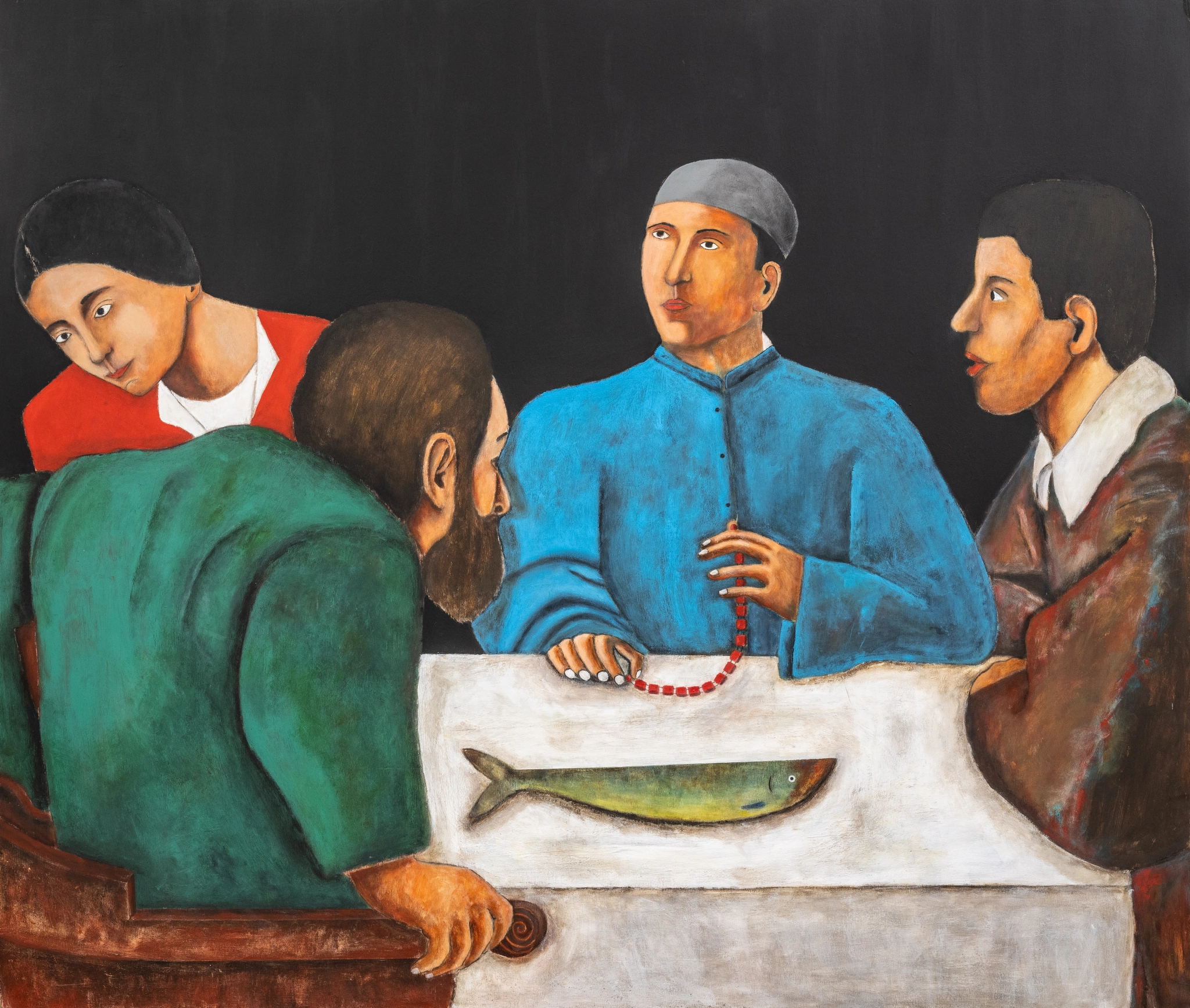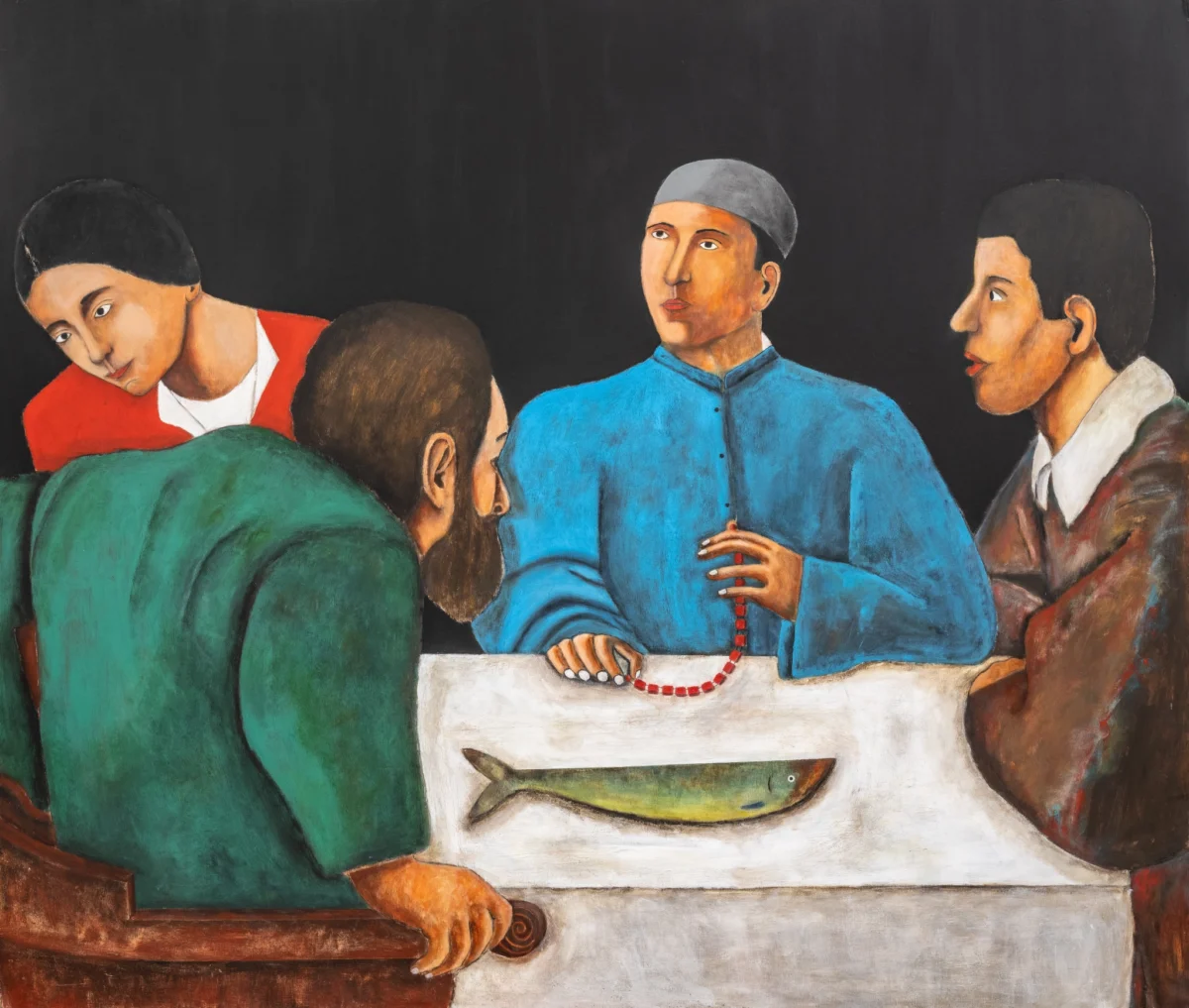
This is the editorial from our Summer Newsletter, 2025. To view the full newsletter, click here
True Peace
Dear Friends,
Welcome to the T4CG Newsletter. This edition is packed with great resources, as you’ll see below. But first, let’s start with a reflection on peace.
For St Augustine, true peace emerges from the harmonious ordering of relations: between people, within and between political communities, and most importantly, with God. This theme, which runs throughout his City of God, is the all-encompassing, relational peace that Leo XIV – the first Augustinian pope – invoked in his first address, describing it as “disarming, humble, and persevering.”
How far we are from such peace. Even though the City of Man will always be blighted byinjustice and conflict, Christians are called to promote peace in its affairs and in everyday life. To do this, we must be alert to what is going on and the causes of division.
For over forty years, British governments of both left and right have been colonised by variants of a bad idea. A hyper-liberal, progressive dogma has “liberated” everything from constraint, leading not only to extreme economic inequality but also freeing us from the limitations of responsibility, tradition, history, borders, citizenship, truth, family and even human nature. Assuming there was no longer any need for God, this philosophy supposedly freed society from God’s laws, supplanting them with the subjective, rational self as the moral authority.
As a result, we face an unravelling, a meta-crisis where everything seems to be going wrong at the same time. Unanswered questions hang over the country like a dark malaise: why so many people are paid wages too low to live on; why young adults are not forming families; why governments allowed migration to become so divisive; why laws allowing the killing of babies and the elderly are rushed through parliament.
Gross mismanagement by careless leaders has left the nation in a parlous state, dangerously divided. Awareness of this unhappy reality is limited depending on where you live, whom you know, and what news sources you consume. Many communities are deeply alienated, and pockets of unrest make wider instability a realistic prospect. Top-down attempts to suppress dissent are fuelling division and resentment, eroding trust and making the situation more volatile.
But there is hope. This moment is an opportunity for the Church to rediscover its true vocation. We are called to witness for Christian peace—not an administrative peace as in tolerance or social cohesion, nor a progressive peace that seeks to re-educate those guilty of wrongthink, but a peace that comes through The Way, the Kingdom, through a life of meaning shaped by the divine order. With God’s grace, it is possible to become a courageous people who sacrifice their own comfort to build this peace.
John XXIII’s encyclical Pacem in Terris points to the causes of division through two lenses: the violation of God’s order and the relation between rights and order. It states that “Peace on Earth… can never be established, never guaranteed, except by the diligent observance of the divinely established order.” It also asserts that laws which violate this order “can have no binding force in conscience.”
Drawing on the wisdom of St Paul, Aquinas, and early Christian thinkers, the encyclical places great emphasis on the interconnection between rights and duties. Duties place rights within an order, creating accountability. For example, “The right to life involves the duty to preserve one’s life; the right to a decent standard of living, the duty to live in a becoming fashion; the right to be free to seek out the truth, the duty to devote oneself to an ever deeper and wider search for it.”
However, the academic ideologies of identity politics ignored the link between rights and duties, leading to a duty-free paradigm of rights. Over time, this one-sided approach caused deep fragmentation, balkanising the population into estranged groups barely aware of the realities outside their silos. There has been a breach of the common good.
For Christ, justice can never be tribal. Just like the biblical prophets before Him, the love our Lord practises sits within the rabbinical tradition of relational justice, bringing people together across class, background, ethnicity and opinion. Love is the way to the Kingdom. This love is accompanied by truth, which, although it can be hard to bear, sets us free.
Where do we begin? We can take courage from the martyrs and saints, and from our fellow citizens today who are brave enough to speak the truth, even at risk to their own liberty. Each of us is called to be a witness to truth, from which justice flows. Truth-telling and listening in a context of divine love are the first steps on the road to a tangible peace. Everyone is worthy of that love, no matter what views they may have held before. Everyone is worthy of redemption.
Our churches must be places of healing, where people are known, loved, and heard, and where solidarity is real. They must become places that honour the vital relationship between rights and duties, the basic structure of reality, and the beauty of God’s moral order. Church communities should feel like home, enabling people to speak truth without fear. Deliberation is essential for social peace, and diversity of opinion is fundamental. Courage is called for, and the truth heals. As Augustine so passionately declares, truth is the very foundation of justice and Christian peace.
In enabling the truth to be told, we enable a life-giving connection between people and the emergence of a shared story of constructive citizenship. Our country desperately needs prophetic witnesses for the common good, and local churches are uniquely positioned to set the tone by standing in the breach.
Gracious Lord, give us the courage to build your peace.
Jenny Sinclair
Founder and Director, Together for the Common Good
In this edition
The summer newsletter also features the articles below. To read the full edition, click here
Ben Curran Staying Put: John Battle’s Quiet Revolution
Jenny Sinclair From Charity to Solidarity: A Radical Return to Christian Justice
Lord Glasman Ever Ancient, Ever New
Danny Kruger A Dangerous New Politics
Jenny Sinclair A Fraying Social Fabric?
Leaving Egypt podcast latest episodes
Jo Stow reports on Common Good Schools
Signs of the Times and Recommended Books latest selection
Explore the T4CG Substack and join our network here
Header image by Temuri Givi Kuliani: “Cleopas and the Unbelievable Story” Reproduced here with kind permission of the artist. www.kulianiart.com

